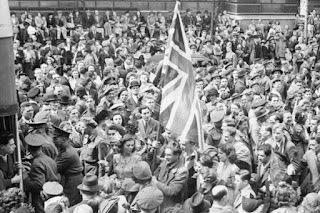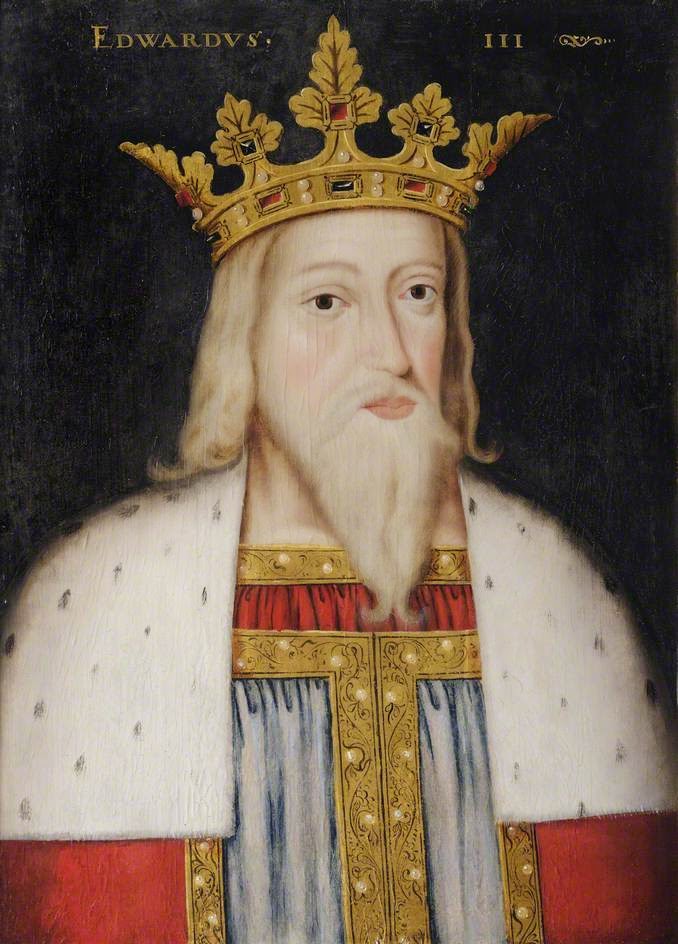Almost eight May, 1945 - Triumph In Europe Declared
Tuesday, May 8, was the official V-E
Day in the United States. At 9 a.m. President Harry S. Truman communicate a
short discourse to the country reminding all that the "battling
employment" would not be done until "the last Japanese division has
surrendered unequivocally." Then the president read his announcement
declaring that "the Allied armed forces, through give up, commitment and
with God's help, having wrung from Germany a last and genuine
surrender."

A
couple of minutes after the President spoke, Prime Minister Churchill reported
that threats would formally end all through Europe at 12:01 a.m. Wednesday, May
9, British time (battling really stopped at 11:01 p.m. Focal European Time). He
broadcasted both May 8 and 9 as Britain's authentic V-E Days and finished with
a stirring "Progress Britannia! Long experience the reason for
flexibility! God spare the King!"
Mess
Peace: That was the official news for which the world had been sitting tight
for almost two weeks. All through the United States, in London, Paris, Moscow,
and many different capitals, chimes chimed, swarms yelled—or implored—and by
and large celebrated. In any case, the official festival was a disappointment
about wherever with the exception of in Russia. In one of the best scoops in journalistic
history, the Associated Press broke the news of the German capitulation 24
hours before the official discharge. The Germans themselves had before declared
their surrender in a communicate by Count Lutz Schwerin von Krosigk.
The
capitulation was really marked at 2:41 a.m. Monday at General of the Army
Eisenhower's central command at Rheims in northern France. Both Churchill and
President Truman stood prepared to peruse their triumph decrees. In any case,
some way or another it ended up being hard for them to connect with Stalin to
orchestrate a planned declaration, and difficult to organize it for Monday. One
story was that Stalin needed to converse with the Soviet delegate who marked
the surrender before he submitted himself. The outcome was the wild yet
authoritatively untimely festival in New York, London, and Paris. Just the
Russians had no triumph headache on Tuesday. They didn't know about the
surrender until Stalin was prepared to declare it.
A
whole country kicked the bucket at Rheims on Monday morning. For quite a long
time the end had been evident to all and it was similarly clear that the
undertaking of Grand Admiral Karl Doenitz, who succeeded Hitler as Fuhrer, was
to surrender what stayed of the German military.
At
that point at long last, as in 1918, the Germans went to the Allies and
requested terms—any terms. Be that as it may, it was not all that
straightforward as 1918, when the German agents were escorted over the leave of
a dead zone and taken to the renowned Wagon Lits eatery auto in the Compiegne
Forest, where for very nearly two hours Marshal Ferdinand Foch noisily and
gradually perused out the terms of surrender. Furthermore, it was in shocking
difference to the scene that occurred in a similar railroad auto in 1940 when
an euphoric Hitler managed a cruel peace to the French.
This
time Grand Admiral Doenitz from his central station—apparently situated in
Norway—reached Allied Supreme Headquarters. He then sent Gen. Chief of naval
operations Hans Georg Von Friedeburg, the tragic confronted, lachrymose officer
who arranged the surrender of the Germans in the north to Field Marshal Sir
Bernard L. Montgomery. Friedeburg landed at Eisenhower's central station at
Rheims on Saturday. After the transactions started it worked out that
Friedeburg didn't have the ability to offer genuine surrender. On Sunday
Doenitz sent a man who did—a tall, ramrod-firm Prussian, Col. Gen. Gustav Jodl,
new Chief of Staff of the German Army.
Jodl
argued and contended through Sunday night—without much of any result. Early
Monday morning the Germans gave in and consented to the terms set by the
Allies. Reporters were summoned to the 30-by 30-foot, outline individual war
room of General Eisenhower. Lights blasted furiously and all through the service
picture takers mixed frantically about. Over an unsteady wooden table Jodl and
Friedeburg confronted the Allied agents—Lt. Gen. Walter Bedell Smith,
Eisenhower's Chief of Staff, looking exhausted following 33 hours of arranging;
Gen. Francois Sevez, the winded French Assistant Staff Chief, and Gen. Ivan
Susloparoff, the Russian delegate, joined by an interpreter with a bare head
and a pernicious eye which he settled on the Germans.
At
precisely 2:41 the marking of the four duplicates of the archives—one each for
Britain, the United States, Russia and France—was finished. Jodl requested that
consent talk. He ascended from the dark topped table. Each muscle in his pitted
face was tight with feeling. Fifty-fifty gagged voice, he stated: "With
this mark, the German individuals and military are regardless conveyed into the
victors' hands. In this war, which has kept going over five years, both have
accomplished and endured more than maybe some other individuals on the
planet."
Later
on Tuesday the surrender was formalized between the Germans and Russians
specifically in Berlin with Marshal Gregory Zhukoff, authority of the First
White Russian Army, marking for the Soviets and Field Marshal Wilhelm Keitel,
Commander-in-Chief of the Wehrmacht, marking for the Germans.
The
Reich had dropped to the least bequest at any point come to by a cutting edge
country. Fabulous Admiral Doenitz himself communicate the composition:
"Troopers of the German Wehrmacht...are beginning on the sharp street to
captivity.... The establishments on which the German Reich was raised have
collapsed.... The [Nazi] party has left the scene of its exercises. With the
control of Germany, power has been exchanged to the forces of occupation.
The
news of triumph conveyed happiness to the hearts of men over the greater part
of the world.
London:
"V-E Day resembled Christmas," Mary Palmer of Newsweek cabled.
"Union Jacks and Allied banners dangled from practically every building.
The war-fatigued individuals of Britain stopped up the roads, the houses of
worship, and the bars. Piccadilly fumed with praising group who heaved from the
walkways into the lanes. Toward one side of Shaftesbury Avenue I saw GI's doing
an Indian move around of acclaiming admirers. Some person got hold of some
Roman candles and shot them into the night sky. Profound throated pontoon
shrieks mixed with closer songfests of 'There'll Always Be an England,'
"Tipperary," and whatever else simple to fit.
"The
London sky was blushed by the flares of triumph campfires. Here and there the
boulevards in the focal point of town GI's, Tommies, ladies in long dresses,
and uncovered legged young ladies sang and yelled. A number of them wore pink
paper tops and swung rattlers. London's repressed feelings bubbled over. It was
the greatest occasion on the planet."
The German officer was abusing the circumstance, the office
included, making no genuine endeavor to contradict the U.S. progress while
contending energetically against the Soviets, in this manner empowering the
Nazi-controlled station in Prague to put out communicates making it create the
impression that the Americans were going to Prague to safeguard the Germans
from the Red Army.
The Associated Press Rheims dispatch said the surrender was
marked there at 2.41 AM yesterday (French time). Eisenhower was absent at the
marking, but rather later got Jodl and the last's central associate, inquiring
as to whether they completely comprehended the surrender terms forced on
Germany and in the event that they would be done, the dispatch said. The
Germans meant understanding, it included.
Jodl, The Associated Press stated, requested that
authorization talk. It was allowed. "With this mark," the
organization cited him as saying, "The German individuals and military are
regardless conveyed into the victors' hands."
The Associated Press in New York said no reason was given
for its suspension, including that its Rheims story, composed by Edward Kennedy,
head of the AP staff on the Western Front, was transmitted by means of Paris
from Rheims, Eisenhower's propel HQ, to London and handed-off from that point
to New York through the office's rented links.
The Russian general present was recognized by Reuter as the
authority responsible for Red Army repatriation." He went to the
Rhine-Maas front early this year. Before the declaration by Krosigk, it was
uncovered that Doenitz had issued an Order of the Day to the German Navy to
stop threats and come back to port, hence finishing the long U-vessel war. This
announcement, communicate by Flensburg Radio, disallowed the groups to leave
their art and requested them to stay on board.
News of the capitulation in Norway was communicate yesterday
evening over a Danish radio wavelength under Allied control. There were an
expected 300,000 German troops in the nation, which had been involved since
Apr. 9, 1940. Various troops were accounted for heading for the Swedish
outskirts ahead of time of the formal surrender.
Marshal Stalin issued the previous evening an Order of the
Day to Marshal Koniev reporting the catch of Breslau and the taking of 40,000
detainees. The most recent message communicate by the Czech-Prague station said
there was battling in the capital's avenues and that German planes had besieged
houses in the focal point of the city. Air ship and other guide was asked for,
as indicated by the record gotten by Czech circles in London.





Comments
Post a Comment